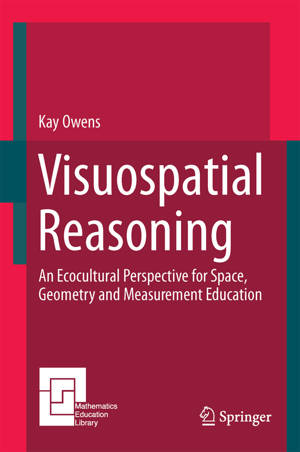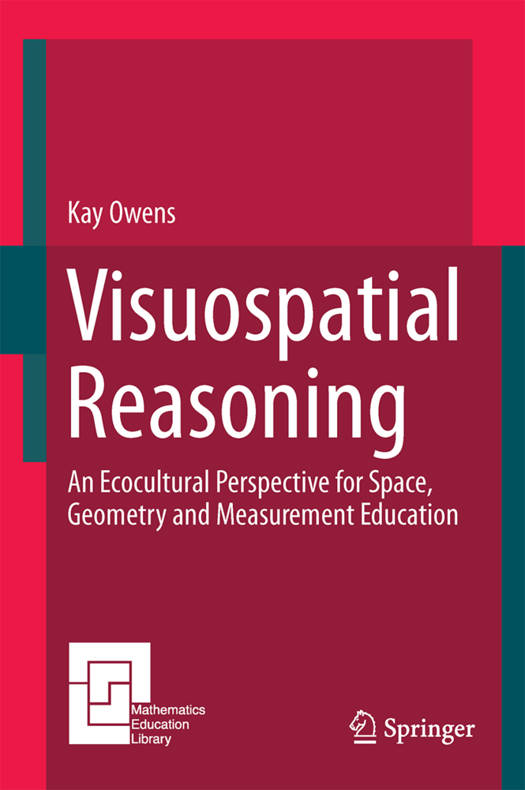
- Afhalen na 1 uur in een winkel met voorraad
- Gratis thuislevering in België vanaf € 30
- Ruim aanbod met 7 miljoen producten
- Afhalen na 1 uur in een winkel met voorraad
- Gratis thuislevering in België vanaf € 30
- Ruim aanbod met 7 miljoen producten
Visuospatial Reasoning
An Ecocultural Perspective for Space, Geometry and Measurement Education
Kay OwensOmschrijving
This book develops the theoretical perspective on visuospatial reasoning in ecocultural contexts, granting insights on how the language, gestures, and representations of different cultures reflect visuospatial reasoning in context.
For a number of years, two themes in the field of mathematics education have run parallel with each other with only a passing acquaintance. These two areas are the psychological perspective on visuospatial reasoning and ecocultural perspectives on mathematics education. This volume examines both areas of research and explores the intersection of these powerful ideas.
In addition, there has been a growing interest in sociocultural aspects of education and in particular that of Indigenous education in the field of mathematics education. There has not, however, been a sound analysis of how environmental and cultural contexts impact visuospatial reasoning, although it was noted as far back as the 1980s when Alan Bishop developed his duality of visual processing and interpreting visual information. This book provides this analysis and in so doing not only articulates new and worthwhile lines of research, but also uncovers and makes real a variety of useful professional approaches in teaching school mathematics. With a renewed interest in visuospatial reasoning in the mathematics education community, this volume is extremely timely and adds significantly to current literature on the topic.
Specificaties
Betrokkenen
- Auteur(s):
- Uitgeverij:
Inhoud
- Aantal bladzijden:
- 377
- Taal:
- Engels
- Reeks:
- Reeksnummer:
- nr. 111
Eigenschappen
- Productcode (EAN):
- 9783319024622
- Verschijningsdatum:
- 21/11/2014
- Uitvoering:
- Hardcover
- Formaat:
- Genaaid
- Afmetingen:
- 156 mm x 234 mm
- Gewicht:
- 752 g

Alleen bij Standaard Boekhandel
Beoordelingen
We publiceren alleen reviews die voldoen aan de voorwaarden voor reviews. Bekijk onze voorwaarden voor reviews.











